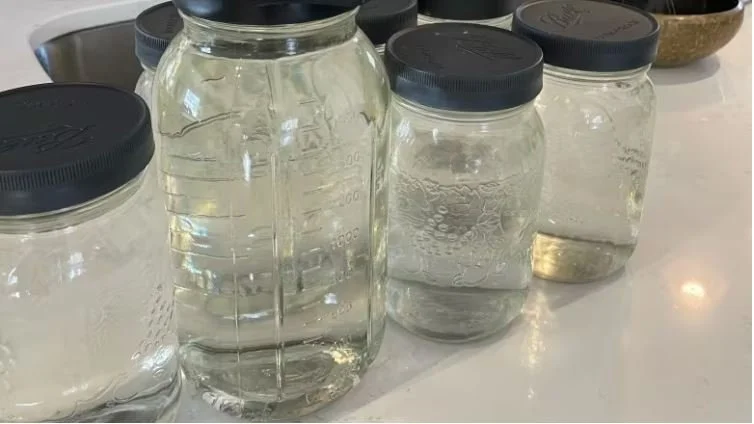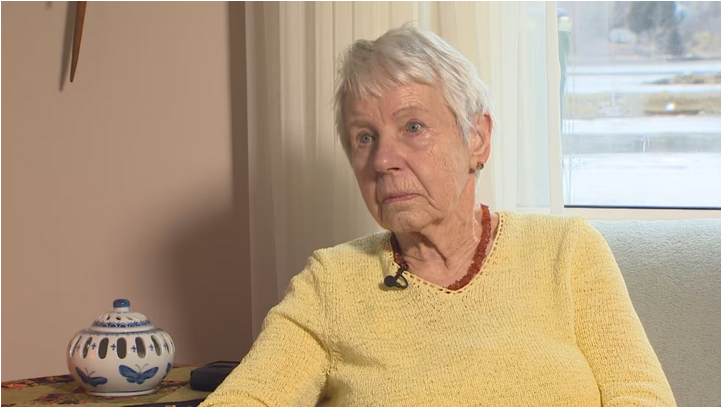An aquatic invasive species has been discovered at a lake in Riding Mountain National Park, according to Parks Canada. This month, preliminary test results from water samples collected at Boat Cove in Clear Lake throughout the summer suggested the presence of zebra mussels, a spokesperson for Parks Canada told CBC News on Monday.
2 Halifax-area lakes closed due to high bacteria levels
Two lakes in the Halifax-area are closed to swimming after high bacteria levels were found in the water. Kearney Lake Beach and Albro Lake Beach – both supervised beaches -- are closed until further notice. A municipal news release Thursday said recent test results show bacteria levels at the beaches exceed Health Canada swimming guidelines.
Water test results show no asbestos fibres in Medicine Hat water system
There are no detectable levels of asbestos in Medicine Hat’s drinking water according to test results from ALS Laboratory Group in Cincinnati, Ohio. A recent episode of CTV network’s W5 program focused on the use of asbestos-cement (A-C) pipe in water distribution systems across Canada. Contributors claimed a potential public health issue if asbestos fibres from A-C pipe enter the water stream and were ingested. Information related to Medicine Hat’s water distribution system was included in the episode.
St. Stephen's boil-water advisory to remain until end of week at least
The boil-water advisory in St. Stephen will remain until at least the end of the week after the town administration underestimated the amount of time it would take to get test results on its water supply, according to a statement the town released Wednesday. "It is with our apologies that we now say that the earliest we may receive the results from the bacterial growth tests will be the end of the week," said Wednesday's statement.
'There's no accountability': Tantallon property contaminated, but no one will clean it up
Brink said at the time, her family made a few calls to find out what could be done, including to the Environment Department, but nothing much came of it. They tested their well water and the results showed it was safe. It wasn't until last year that Brink's daughter, Margret Holland, received the results of a freedom of information request and learned that the commercial property and her mother's property are contaminated with total petroleum hydrocarbons, including benzene, toluene, ethylbenzene and xylene.
N.B. wastewater data suggests some COVID-19 cases went undetected in 2021
Public Health officials have raised questions around whether some COVID-19 cases in New Brunswick went undetected in early 2021, after an apparent mismatch between the amount of COVID-19 appearing in wastewater and the province's own COVID-19 testing. The wastewater data shows four apparent spikes of COVID-19 in 2021: on Feb. 8, March 18, April 29 and June 28, all times when there were "minimal cases or positive tests" reported and PCR testing was widely offered. The wastewater testing is conducted by the City of Moncton, which has a partnership with Dalhousie University, and is provided to New Brunswick Public Health. CBC News obtained a copy of the test results, and discussion within the Department of Health about the results, through access to information.
Expert says blue-green algae may not be cause of Grand Lake contamination
Tri Nguyen-Quang, an engineering professor whose research includes water quality and management, collected samples of the lake water around the shoreline last week. "I think there is some very harmful substance, chemical substance in the water. But that I don't know yet," Nguyen-Quang said Monday. "So far, just the impression that … something is not normal there."
Côte Saint-Luc has some of the worst tap water in Quebec due to lead contamination
The Montreal Island city of Côte Saint-Luc has some of the worst tap water in the province, according to testing results for lead released through access to information legislation. The test results, compiled by Quebec’s Environment Ministry, show that 46 tap water samples from the Montreal Island city of 30,000 people had more than 10 parts per billion (ppb) of lead over a four-year period from 2015 to 2018.
City of Regina says it plans to fast-track lead service replacement program
In light of a recent investigation that showed high levels of lead in the drinking water of some Regina homes, the city says it’s drafting a motion to fast-track its lead service connection replacement program. “It is definitely a problem and we are not minimizing anything here,” Mayor Michael Fougere said. “We want to make sure that we have the program accelerated so that [on] the city-side, our connections are done right away and at the same time we do the homeowners’ side as well.”










